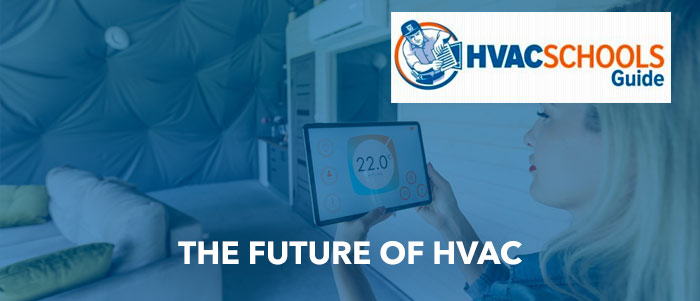
The HVAC industry is undergoing a technological revolution, with smart technology and automation transforming the way heating, ventilation, and air conditioning systems operate. As we move into 2025, these advancements are not only improving energy efficiency but also enhancing comfort, reducing costs, and promoting sustainability. Whether it’s smart thermostats, AI-driven predictive maintenance, or fully automated climate control systems, the future of HVAC is more intelligent than ever.
AI and Machine Learning in HVAC
Artificial intelligence (AI) and machine learning (ML) are at the forefront of HVAC innovation. These technologies enable systems to learn user preferences, predict maintenance needs, and optimize energy consumption. By analyzing data from sensors and historical usage patterns, AI-driven HVAC systems can automatically adjust settings to maximize efficiency while maintaining optimal indoor comfort. Predictive maintenance, powered by AI, can identify potential system failures before they occur, preventing costly repairs and downtime.
Smart Thermostats and IoT Integration
Smart thermostats have already become a staple in modern homes and businesses, and their capabilities continue to expand. With Internet of Things (IoT) integration, these devices can connect with other smart home systems, allowing users to control temperature settings remotely via mobile apps or voice assistants. Advanced models can even adapt to occupancy patterns, automatically adjusting temperatures based on real-time data to optimize energy savings. In 2025, we can expect even more seamless automation, where HVAC systems work in harmony with other smart devices, such as lighting and security systems.
Automated Climate Control Systems
Gone are the days of manually adjusting HVAC settings throughout the day. Automated climate control systems use sensors and AI to dynamically regulate indoor temperatures, humidity, and air quality. These systems are particularly beneficial for commercial buildings and large-scale facilities, where maintaining consistent environmental conditions can be challenging. Smart zoning technology allows different areas of a building to have customized climate settings, improving comfort and energy efficiency.
Energy Efficiency and Sustainability
One of the biggest drivers of HVAC innovation is the push for sustainability. Smart HVAC systems help reduce energy consumption through real-time monitoring and optimization. New advancements, such as geothermal heat pumps and solar-powered HVAC units, are gaining traction as environmentally friendly alternatives to traditional systems. Governments and businesses are increasingly investing in green HVAC technologies to meet stricter energy efficiency regulations and reduce carbon footprints.
The Rise of Voice and Gesture Controls
Voice-activated controls and gesture-based interfaces are making HVAC systems more user-friendly. Homeowners and facility managers can now adjust settings with simple voice commands or hand gestures, eliminating the need for manual input. These features enhance accessibility and convenience, particularly for individuals with disabilities or mobility challenges.
Challenges and Considerations
While the future of HVAC looks promising, there are still challenges to overcome. The integration of smart technology requires strong cybersecurity measures to protect user data and prevent system vulnerabilities. Additionally, the initial cost of upgrading to intelligent HVAC systems can be a barrier for some homeowners and businesses. However, as technology advances and costs decrease, widespread adoption is expected to grow.
The HVAC industry is embracing a future driven by smart technology and automation. With AI-powered systems, IoT integration, and energy-efficient innovations, HVAC systems are becoming more intuitive, cost-effective, and environmentally friendly. As we move through 2025 and beyond, these advancements will continue to shape the way we heat, cool, and manage indoor environments. Whether you’re a homeowner, business owner, or HVAC professional, staying ahead of these trends will be key to maximizing comfort and efficiency in the years to come.
- The Future of HVAC: Smart Technology & Automation in 2025
- Best Online HVAC Schools in 2025
- How Hard Are HVAC Classes?
- What Are Ten Differences Between Residential HVAC Professions and Industrial HVAC Professions?
- What Are Some Specific Examples of What I May Learn in HVAC School?
- I’m Ready to Apply to HVAC School. What Are the Steps to Take?
- The Important of HVAC Training in Regards to Climate Change